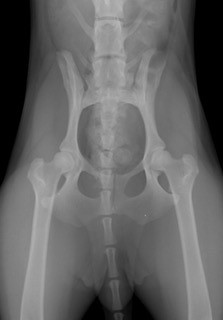Ethical Labradoodle breeding program
Amalie is proudly endorsed as an ethical breeder with our local council. In this way you can be assured that we operate transparently and meet the legislated requirements for dog breeders and is one of the many commitments we make to our dogs and our clients to set us apart. We have recently relocated to the Byron Bay region in NSW.
We are committed to breeding in an ethical way that meets or exceeds best practice standards. Our program aims to contribute to the development of the breed and to the rearing of healthy and well socialised pets and assistance or therapy dogs. You can check out the Australian Labradoodle breed standard which describes what sort of consistent attributes we are aiming to breed into our puppies. At Amalie we work to the following:
- Amalie dogs are cared for in a family environment which provides all necessary care and socialisation;
- Our breeding stock are healthy, show desirable physical attributes for the breed and have balanced, sociable temperament;
- All dogs used in our breeding program are health tested – full details of our health testing protocol below;
- Companion puppies are micro-chipped before leaving our care – we offer early age desexing but will consider a delayed desexing contract in specific circumstances and offer this option in conjunction with a third party – SpaySecure;
- Amalie will keep appropriate records of all dogs in our program and continue to act as a resource to our puppy owners.
Health testing
Dogs are susceptible to a variety of health concerns and we are fortunate to now have access to a wide range of DNA based tests. To ensure that we have the information we need when breeding puppies, our breeding dogs are routinely tested for the following genetically inheritable diseases (Orivet’s full breed profile for the Australian Labradoodle 2022):
- Achromatopsia
- Autosomal Hereditary Recessive Nephropathy
- Centronuclear Myopathy
- Cone-Rod Dystrophy I – PRA (crd -4/cord I)
- Congenital Myasthenic Syndrome
- Cystinuria (SLC3A1)
- Degenerative Myelopathy
- Ehlers-Danlos Syndrome
- Elliptocytosis B-spectrin
- Exercise Induced Collapse
- Gangliosidosis GM2
- Generalised PRA 1
- Globoid Cell Leukodystrophy/Krabbe’s Disease
- Hereditary Nasal Parakeratosis/Dry Nose
- Hyperuricosuria
- Ivermectin Sensitivity MDR1 (Multi Drug Resistance)
- Malignant Hyperthermia
- Mild Disproportionate Dwarfism
- Mucopolysaccharidosis VI
- Myotubuular Myopathy X Linked
- Narcolepsy
- Neonatal Encephalopathy
- Osteochondrodysplasia
- Phosphofructokinase Deficiency
- Progressive Rod Cone Degeneration (prcd) – PRA
- Pyruvate Kinase Deficiency
- rcd4-PRA (Late Onset)
- Skeletal Dysplasia 2
- Stargardt Disease (Retinal Degeneration)
- Von willebrands disease Type I
In this way, we can be certain that your pup will not inherit any of these life limiting diseases as we use the DNA results to guide our pairing decisions. We also test for colour traits and coat characteristics which helps us manage coat quality to some degree.
To give you an example: one of the diseases is prcd-PRA (progressive rod cone degeneration – Progressive Retinal Atrophy, often abbreviated to PRA). It is a genetically inherited eye disease that leads to blindness by causing cells in the retina at the back of the eye to degenerate and die. It is a hereditary disease carried by Labradors, Poodles and at least 28 other dog breeds.
As there is no cure for PRA, the only strategy available to eliminate the disease from the breed is ensuring a mating will not result in an affected puppy.
We will continue as we have begun and will always DNA test our breeding boys and girls. Through health testing, ethical breeders know each dog’s genetic status and responsible breeding strategies can be planned. Please note though, there are 450+ hereditary diseases affecting dogs and so far the development of screening tests only enables us to test for a limited number of conditions.
Amalie’s health testing protocol
Two things to keep in mind when you ask ‘what makes a great Amalie Labradoodle?’
- We aim to breed healthy dogs with sound temperament first and foremost – we can’t promise you a ‘perfect dog’ (we haven’t seen one anywhere yet) but can vouch that our dogs make wonderful family pets – some are even working towards becoming therapy dogs
- Occasionally, despite our best efforts, things do not go to plan and this is why we provide a three year health guarantee. Please contact us early if you have concerns about your puppy’s health!
Hips and elbows
We usually test our dogs at 12 months of age and prefer a combination of tests to give us the most informed perspective for choosing breeding pairs. From 12 months of age we use AVA and PennHip – before 12 months we use PennHip and OFA.
We aim to breed with dogs with scores that are better than the breed average. For AVA, currently that is less than or equal to 6; for PennHip, better than 50th percentile; and OFA, either ‘Excellent’ or ‘Very Good’. However there can be extreme discrepancies between tests and that is why we do a series of tests and use these to guide our judgement. If we choose to use a dog that has scores beyond our normal acceptable limits (eg. because he or she has a wonderful temperament) we aim to pair these dogs with a mate that has the best scores possible.
DNA testing
DNA testing is improving all the time. Amalie Labradoodles was instrumental in bringing this wider, mandatory screening policy into place for the Australian Labradoodle Association. At Amalie Labradoodles we screen all of our dogs to obtain a DNA ‘fingerprint’ using Orivet’s full DNA breed profile. It gives us peace of mind.

• Download PennHip’s brochure
• Amalie’s health guarantee
We aim to give our pups a stimulating environment with plenty of opportunities to learn and explore. Please contact us if you have questions or browse our Labradoodle puppies for sale.
